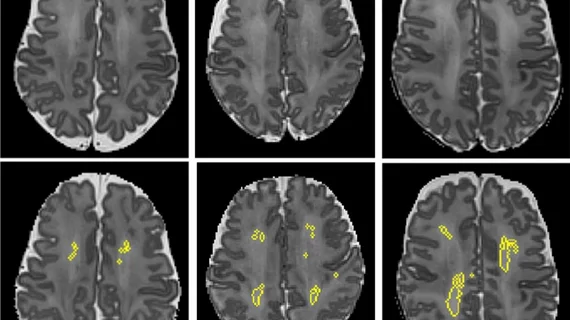Researchers find promising results using focused ultrasound in breast cancer patients with brain metastases
New research out of Sunnybrook Research Institute in Toronto, Canada, is shining a positive light on using focused ultrasound to treat brain metastases in breast cancer patients.
The research, published last week in Science Translational Medicine, indicates using MR-guidance in conjunction with focused ultrasound to deliver therapeutic antibodies to tumors of the brain could help decrease tumor size by an average of 21%. This study is the first in the world to demonstrate the positive results of this method.
Treating brain tumors is tricky due to the blood-brain barrier (BBB), which protects the brain from harmful toxins and bacteria, but also inhibits the ability of targeted therapeutics to access tumors. By incorporating MR-guided focused ultrasound, researchers were able to gently, non-invasively, and temporarily penetrate the BBB with ultrasound waves, allowing greater access to tumors.
In the study, trastuzumab (Herceptin), a drug used as part of a chemotherapy regimen, was radio-labeled with a compound that is easily visualized using SPECT (single photon emission computerized tomography). It was administered intravenously, and scans were taken before and after using the focused ultrasound. The results of the scans showed increased uptake of antibody therapy when administered while using focused ultrasound.
"This is the first visual confirmation that focused ultrasound can improve the delivery of targeted antibody therapy across the blood-brain barrier," says Nir Lipsman, MD, the study’s principal investigator and director of the Harquail Centre for Neuromodulation at Sunnybrook. "These are preliminary, but very promising results that with continued research have implications well beyond brain cancer for other neurological conditions, including Parkinson's disease and Alzheimer's, where the blood-brain barrier poses a challenge to drug delivery."
Brain metastases in cancer patients can be difficult to treat and are associated with higher morbidity rates. Currently, treatments for metastatic breast cancer patients include open neurosurgery, chemotherapy, and radiation—all of which can leave a patient feeling debilitated. Though more research is needed, the results of this clinical trial are promising for patients enduring the often-intense treatments that accompany a metastatic cancer diagnosis.
You can read the full announcement here.

